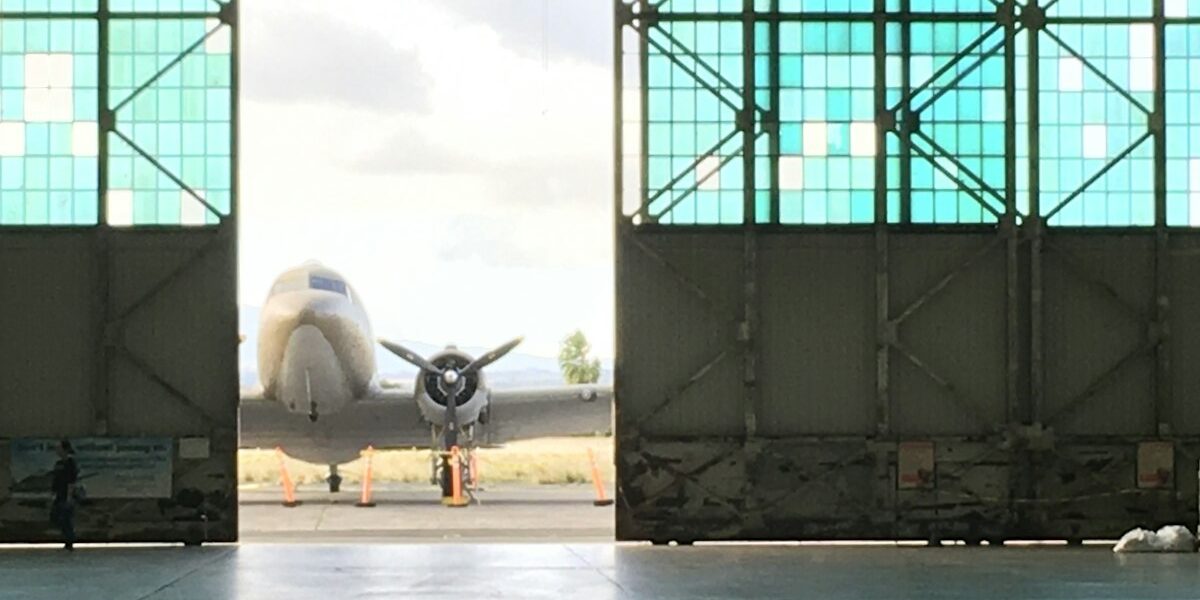The Benefits of Renting a Hangar for Your Aircraft
Renting a hangar provides numerous advantages for aircraft owners. It ensures the safety and maintenance of your investment.

Protection from Weather
One substantial benefit of renting a hangar is protection from weather. Aircraft left out in the open face risks from rain, snow, sun, and hail. These elements can cause significant damage to the exterior and interior, which may lead to costly repairs.
Hangars shield aircraft from harmful ultraviolet rays that can fade and crack paint. They also prevent the buildup of ice on the wings and body, ensuring safer and more efficient operations.
Enhanced Security
Aircraft are valuable assets, thus security is a top concern. Renting a hangar significantly reduces the risk of theft and vandalism. Hangars typically feature advanced locking systems and surveillance cameras.
Additionally, airport hangars often have security staff patrolling the area, further deterring potential criminal activities. The peace of mind knowing your aircraft is secure cannot be overstated.
Controlled Environment
A controlled environment within a hangar helps in maintaining the aircraft. Extreme temperatures can affect various aircraft components, including avionics and batteries. A hangar protects these components from extreme cold and heat.
This controlled environment can also reduce the internal temperature fluctuations that could otherwise affect sensitive instruments. It helps in maintaining the readiness of the aircraft at all times.
Convenience and Accessibility
Renting a hangar facilitates regular maintenance and inspections. With the aircraft stored nearby, scheduling routine checks becomes simpler. It eliminates the hassle of securing a spot in a congested airport space.
Maintenance crews also appreciate the controlled, indoor environment for conducting their work. This can lead to quicker turnaround times for repairs and checks, getting your aircraft back in the air faster.
Increased Lifespan
Protection from the elements and controlled storage conditions contribute to a longer lifespan of your aircraft. Regular exposure to harsh weather speeds up wear and tear, whereas a hangar provides a safer environment.
Components last longer when shielded from severe conditions. The reduced exposure to corrosive elements helps in preserving the aircraft’s structural integrity over time.
Value Retention
Aircraft that are well maintained and protected retain their value better. When it comes time to sell or trade in your aircraft, its condition plays a significant role in determining its market value.
By storing your aircraft in a hangar, you can keep it looking and functioning like new for a longer period. This can translate to higher resale value, providing a financial benefit in the long run.
Customization and Space
Renting a hangar offers the added benefit of customization. Many hangars allow for personalized storage solutions, such as tool racks, servicing equipment, and spare parts storage. This makes for an efficient and convenient workspace.
The additional space in a hangar can also be used for storing related accessories, pilot gear, and maintenance tools, all in one location. This centralization of resources streamlines operations and planning.
Privacy
Privacy is another advantage of hangar rental. Working on your aircraft away from the public eye offers a more relaxed environment. This is particularly beneficial for private and corporate aircraft owners.
Repairs, upgrades, and routine checks can be conducted without external distractions. Having a private space ensures that your maintenance activities remain discrete and uninterrupted.
Compliance and Regulations
Storing your aircraft in a hangar helps in easier compliance with aviation regulations. Certain maintenance and storage guidelines require controlled environments, which hangars provide.
Hangar operators are usually well-versed with aviation regulations, ensuring that your aircraft remains compliant with standards set by aviation authorities. This reduces the risk of regulatory issues and potential fines.
Cost-Effective in the Long Run
While renting a hangar involves a monthly fee, it can be cost-effective in the long run. The savings from reduced maintenance, increased aircraft lifespan, and preserved aircraft value can offset the rental costs.
Investing in a hangar can help avoid substantial repair bills resulting from outdoor exposure. Ensuring the aircraft’s optimal condition means fewer unexpected expenses and more predictable operational costs.
- Minimized repair costs
- Reduced downtime
- Higher resale value
Improved Efficiency
Having an indoor space for maintenance can improve operational efficiency. Technicians can work in a controlled environment, reducing delays caused by weather. This leads to more effective and timely repairs.
Routine maintenance tasks are performed more comfortably and efficiently under the protection of a hangar. The ability to conduct inspections and servicing without weather-related interruptions increases overall operational efficiency.
Greater Predictability
Storing an aircraft in a hangar allows for greater predictability in maintenance scheduling. Weather will not dictate your ability to perform checks and repairs. Your maintenance calendar can proceed without disruptions.
Predictable maintenance windows enable better planning and operational readiness. Aircraft can be kept in peak condition, ensuring they are available and reliable when needed.
Networking and Community
Renting a hangar within an airport community fosters networking opportunities with other pilots and professionals. These interactions can lead to sharing tips, resources, and support.
A supportive community environment can be beneficial for both novice and seasoned aircraft owners. Networking within this circle can provide valuable insights and opportunities for collaboration.
Insurance Benefits
Having your aircraft stored in a hangar may result in lower insurance premiums. Insurance providers recognize the reduced risk of damage and theft when an aircraft is hangared.
Storing your aircraft in a hangar shows a proactive approach to protecting your investment. This responsible action can be reflected in lower insurance costs, adding another financial benefit.
“`
Recommended Aviation Resources
Pilots Handbook of Aeronautical Knowledge – $25.42
Essential FAA handbook for every pilot.
Aircraft Owners Handbook of Maintenance
Keep your aircraft in top condition.
As an Amazon Associate, we earn from qualifying purchases.



